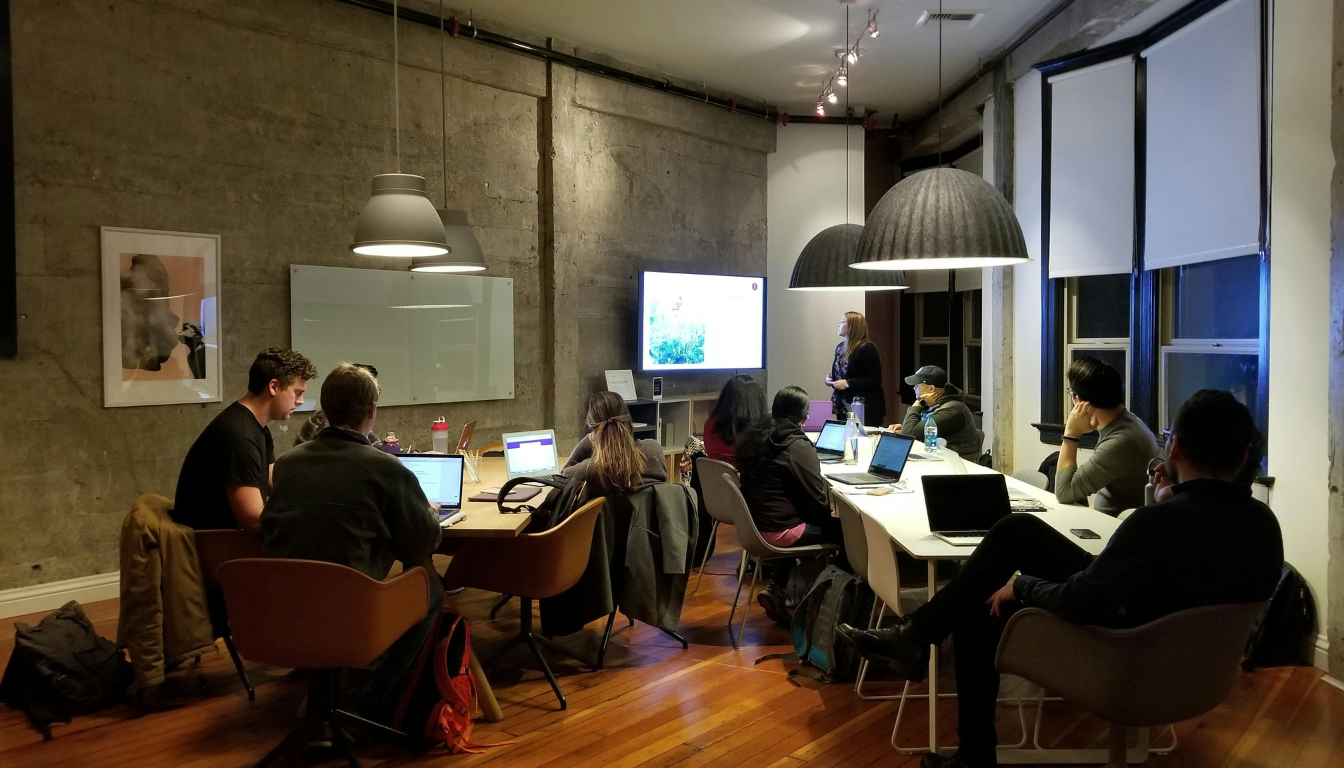The Best Strategies for Building Trust in Team Building

Trust in team building is crucial for fostering collaboration and driving success. It plays a key role in open communication, innovation, and conflict management. This article explores why trust matters, its benefits, and offers practical strategies to build it within your team.
Key Takeaways
- Trust is essential for high-performing teams, fostering engagement, communication, and overall job satisfaction.
- Building trust requires consistent leadership strategies, including leading by example, encouraging open communication, and showing appreciation.
- Regular assessments of trust levels through employee feedback and check-ins are crucial for tracking progress and adjusting strategies effectively.
Understanding the Importance of Trust in Team Building

Trust is the foundation of most successful organizations. It is the bedrock upon which engagement, productivity, and overall job satisfaction are built. In high-trust environments, employees are more likely to feel valued and motivated, leading to enhanced team performance. When trust is present, team members are more inclined to communicate openly and honestly, reducing the likelihood of office politics and conflict within the organization.
Trust between managers and team members is crucial for achieving success together. It fosters a positive team climate where contributions are valued, and members care for each other’s wellbeing. This mutual respect and support create resilient and adaptive work teams, capable of navigating periods of change with ease. Without trust, even the most talented teams can struggle to collaborate effectively and achieve their full potential.
In today’s fast-paced business world, understanding the importance of trust in team building is more critical than ever. High-performing organizations recognize that building trust is not a one-time effort but an ongoing process that requires consistent actions and commitment from both leaders and team members. This principle is reflected in the increasing reliance on expertly organized retreats, such as those facilitated through platforms like Offsite, which are designed to foster meaningful collaboration and strengthen team cohesion in thoughtfully curated environments.
Key Benefits of Building Trust in Teams

Building trust in teams offers numerous benefits that can significantly impact overall team performance and business results. High-trust companies often emphasize employee empowerment and prioritize collaboration, leading to a more engaged and motivated workforce. When trust is present, individuals are more likely to communicate openly and honestly, fostering a culture of transparency and mutual respect.
One of the key benefits of trust is enhanced collaboration and communication. In high-trust environments, team members feel safe to share their ideas and take risks, leading to more innovative solutions and successful outcomes. Additionally, trust can reduce stress and burnout, resulting in higher morale and job satisfaction. Employees in trusted teams experience less stress, fewer sick days, and a greater sense of belonging.
Trust also plays a vital role in boosting team morale and engagement. Regularly showing appreciation for team members’ contributions and celebrating their successes can significantly enhance motivation and productivity. In a high-trust environment, employees feel valued and supported, leading to a positive team culture, improved overall performance, and increased confidence.
Essential Strategies for Building Trust Among Team Members
Building trust among team members requires intentional strategies and consistent efforts. Three essential strategies include: Leading by Example, Encouraging Open Communication, and Showing Appreciation Regularly. Leaders build trust, and these strategies are a key part of effective team dynamics, cultivating trust.
These approaches are fundamental in establishing a trustworthy environment where team members feel valued and motivated to collaborate effectively in their best interests.
Lead by Example
Trust must be earned through consistent behavior, keeping promises, and aligning actions with values. When leaders consistently do what they say they will do, they model trustworthy behavior that team members can rely on. This consistency helps teams know what to expect, fostering a sense of stability and trust.
Transparency and authenticity are crucial in leadership. A leader should exhibit these qualities to build trust within their teams. Being open about uncertainties and admitting mistakes demonstrates leaders’ integrity and willingness to learn and grow. This openness fosters a growth mindset and encourages team members to share their ideas and feedback freely.
Listening to team members and showing empathy can significantly enhance trust. Active listening from leaders builds strong relationships and motivates team members to give their best efforts. Encouraging team members to share their views during meetings also fosters a sense of belonging and trust.
Encourage Open Communication
Creating a safe environment where employees can express themselves is crucial for building trust. People should feel comfortable sharing their ideas, thoughts, and concerns without fear of judgment or retribution. Leaders can foster this environment by encouraging two-way talk and accepting moments of silence in discussions.
Transparency and honesty are vital components of open communication. Leaders should openly communicate their uncertainties and be transparent about workplace changes to keep employees informed and engaged. Authenticity in communication helps build trust, as employees can sense when leaders are genuine and honest, reflecting the truth of their intentions.
Regular check-ins and feedback sessions are essential for maintaining open communication. Scheduled individual meetings provide opportunities for dialogue and help build trust among team members. Regular updates and feedback prevent misinformation and ensure that everyone is aligned with the team’s goals.
Show Appreciation Regularly
Acknowledging individual contributions boosts overall team morale and productivity. Recognizing the successes of every team member creates camaraderie and fosters commitment within the team. Leaders can show appreciation by recognizing hard work daily and addressing employee concerns.
Public and private recognition are both important in building a positive company culture and team environment. Celebrating team milestones and encouraging diverse contributions during discussions help individuals feel valued and engaged. In remote environments, recognizing and valuing each team member’s contributions is crucial for developing trust.
Enhancing Trust Through Effective Team Meetings

Effective team meetings are an essential part of building trust within teams. They provide a platform for open communication, setting clear expectations, and promoting active participation.
Enhancing trust through well-structured team meetings involves several key practices.
Set Clear Expectations
Clearly defined goals during meetings help ensure that all team members are focused on the same outcomes. When goals and roles are clear, teams experience improved alignment and understanding among members. This clarity enhances accountability and ensures that each member knows their contributions are valued.
Setting clear expectations collectively contributes to a more effective and cohesive team performance. It helps team members understand and feel comfortable and aligned with project goals, fostering a sense of trust and reliability.
Promote Active Participation
Encouraging all team members to voice their opinions during open discussions can lead to a more inclusive team environment. When everyone is encouraged to contribute, it enhances engagement and strengthens relationships within the team. This active participation fosters a sense of belonging and mutual respect, which are essential for building trust and can provide all the answers.
Active participation in team meetings also promotes collaboration and improves communication, contributing to professional growth. It ensures that all perspectives are considered, leading to better decision-making and stronger team dynamics.
Follow Up on Commitments
Following through on actions agreed during meetings is crucial to maintain trust and demonstrate reliability to the team. Consistent follow-up on agreed actions reinforces accountability and shows commitment to acting team agreements.
Regularly checking on progress regarding agreed actions from meetings reinforces accountability and trust. It demonstrates that the team values follow-through and is committed to achieving its goals.
Building Trust in Virtual Teams

Building trust in virtual teams is critical but can be more challenging due to the lack of face-to-face interactions. Trust matters even more for virtual teams, as it is the foundation for effective collaboration and communication in a remote setting.
Building trust in virtual teams requires the deliberate implementation of targeted strategies specifically designed to cultivate and sustain trust across remote environments.
Start with In-Person Meetings
Face-to-face meetings at the beginning of projects can significantly enhance personal and work connections and trust among team members. Ultimately, these initial meetings help build relationships and set a positive tone for collaboration and commitment.
In-person meetings assist in building trust through personal connections, making it easier for team members to work together effectively in a virtual environment.
Utilize Technology Effectively
Utilizing video conferencing tools helps create a more personal connection among team members in virtual settings, reducing misunderstandings. Collaboration software that enables real-time document sharing enhances teamwork and showcases reliability in task execution, fostering innovation.
Having informal communication platforms allows team members to connect casually, fostering stronger relationships outside formal work interactions. Clear and straightforward language in written communications minimizes ambiguity and enhances understanding among team members to improve communication.
Foster a Sense of Belonging
Creating opportunities for informal interactions can strengthen camaraderie and trust among remote team members. Informal virtual hangouts and casual conversations help team members connect on a personal level, fostering a sense of inclusion and psychological safety. These interactions are crucial for building genuine relationships and a cohesive team culture.
Fostering a sense of belonging enhances trust and improves communication within virtual teams. When team members feel valued and included, they are more likely to collaborate effectively and contribute their best efforts. Leaders can create a safe environment by recognizing individual contributions and encouraging open communication.
Leveraging Offsite Team Retreats for Trust Building

Offsite team retreats offer a unique opportunity to build trust and enhance collaboration among team members. These retreats provide a relaxed environment where team members can engage in thoughtful activities, strengthen their relationships, and foster a positive team’s culture.
Planning and executing effective offsite retreats for trust building involves several key steps.
Planning Thoughtful Activities
Planning thoughtful activities is essential for fostering teamwork and trust among team members. Activities that encourage relaxation and team bonding can significantly enhance the trust-building experience. Engaging professional facilitators can guide teams through trust-building exercises and discussions more effectively, ensuring that the activities are impactful and aligned with the retreat’s objectives.
Thoughtful activities should focus on developing trust through shared experiences. These activities can range from team-building exercises to collaborative problem-solving tasks, all designed to deepen relationships and enhance collaboration.
Selecting the Right Venue
A suitable venue for team building should be away from the typical work environment to reduce distractions and promote relaxation. Consider venues that offer outdoor spaces or a natural part of the environment, as these settings can enhance creativity and camaraderie among team members. Creating a relaxing atmosphere can decrease stress levels and make team members more open to engaging with each other.
Venues that provide facilities for group activities, such as team-building exercises or workshops, can significantly enhance the bonding experience. Choosing the right venue is crucial for maximizing the impact of the retreat and ensuring that team members can focus on building trust and collaboration.
Utilizing Professional Facilitation
Engaging skilled facilitators can guide trust-building exercises effectively, making the retreat more impactful. Experienced facilitators provide structure and expert guidance, ensuring that the activities are aligned with the group’s objectives and foster genuine relationships among team members.
Professional facilitators can help teams navigate trust-building exercises, ensuring engagement and focus throughout the retreat. Their expertise in communicating and developing trust ensures that the retreat is not only enjoyable but also productive and aligned with the team’s goals.
Real-World Examples of Successful Trust Building
Real-world examples provide tangible evidence of effective trust-building strategies in organizational settings. By examining successful initiatives, we can gain insights into how to build trust within our own teams.
Examining examples of companies that have successfully implemented trust-building strategies provides valuable knowledge insights for business leaders, as highlighted in the Harvard Business Review.
Offsite Success Stories
Companies have saved over $3.2 million through Offsite’s services, demonstrating the cost-effectiveness and impact of structured team retreats. Wes Winham, the Founder/CEO of Woven, mentioned that Offsite helped them avoid big mistakes and have a great experience, highlighting the value of professional facilitation in trust-building.
Offsite services provide a structured way for companies to plan team retreats, enhancing collaboration and trust among team members. These success stories illustrate how thoughtful planning and professional guidance can lead to significant business results and stronger team dynamics and collaborative teams.
High-Trust Companies
High-trust companies often have management practices that emphasize fairness and support. At Cadence, a high-trust company, 86% of employees feel their managers treat everyone fairly, supported by training on unconscious bias. Such practices create an environment where employees feel valued and respected, fostering a culture of trust.
DHL Express encourages a sense of purpose among employees, leading 90% to feel their work is meaningful and contributes to larger jobs in the right direction. At Atlassian, 94% of employees feel supported in achieving a healthy work-life balance, enhancing their overall job satisfaction and trust in the company.
These examples demonstrate how high-trust companies cultivate trust through supportive and fair management practices.
Measuring and Tracking Progress in Trust Building
Measuring and tracking progress in trust building is essential for evaluating the effectiveness of trust-building initiatives. Regular assessments help organizations identify strengths and areas for improvement, ensuring that trust-building efforts are aligned with team dynamics and goals.
Measuring and tracking progress in trust-building can be achieved through several methods.
Employee Surveys and Feedback
Confidential employee surveys provide a safe avenue for staff to express their views, which aids in identifying strengths and opportunities for workplace improvement. Survey analysis can reveal specific trust deficits that need to be addressed to improve team cohesion.
After gathering feedback, leaders should act on suggestions and keep employees updated about the changes being implemented. Sharing what was learned from the surveys and what improvements are being hoped for fosters transparency and accountability.
Regular Check-Ins
Regular one-on-one meetings are crucial for building trust within teams as they provide a platform for open communication, sharing updates, and resolving conflicts. Frequent one-on-one meetings facilitate transparent discussions and allow for immediate adjustments in team dynamics.
Regular check-ins can help managers identify early warning signs of disengagement or trust issues within the team. Overall, regular check-ins significantly enhance team trust and dynamics by fostering communication and addressing issues promptly.
Adjusting Strategies Based on Data
Data-driven assessments are essential for identifying gaps in trust and areas that need improvement. Employee surveys can effectively capture team members’ perceptions of trust and highlight areas for improvement.
Regular one-on-one meetings assist leaders in monitoring individual and team trust levels, allowing for timely adjustments to strategies. By utilizing data from assessments, organizations can refine their trust-building initiatives for better outcomes.
Summary
Building trust within teams is a complex, multifaceted endeavor that demands sustained effort and the application of intentional, well-structured strategies. Key components of this process include modeling trustworthy behavior at the leadership level, promoting transparent and open communication, utilizing structured offsite retreats such as those offered through Offsite to deepen interpersonal connections, and systematically monitoring team dynamics to ensure continuous improvement. Each of these elements contributes meaningfully to the establishment of a dependable and high-performing team culture. By adopting these measures, organizations position themselves to significantly improve collaboration, streamline communication, and elevate overall team effectiveness—laying the foundation for long-term success.
FAQs
- Why is trust important in team building?
Trust is essential in team building as it fosters engagement, productivity, and job satisfaction, leading to a more cohesive and effective team. Prioritizing trust enhances overall team performance.
- How can leaders build trust within their teams?
Leaders can build trust within their teams by leading by example, promoting open communication, and consistently showing appreciation. By fostering an environment of transparency and recognition, trust is strengthened.
- What are the benefits of building trust in teams?
Building trust in teams enhances collaboration, reduces stress and burnout, and boosts overall morale and engagement. This foundation fosters a more productive and supportive work environment.
- How can offsite team retreats help in building trust?
Offsite team retreats foster a relaxed atmosphere that facilitates meaningful interactions and structured activities, significantly enhancing team dynamics and building trust among members.
You may also like
Unique spaces for your next offsite
Find distinctive venues for your upcoming corporate retreat.
Stay Updated with Our Insights
Get exclusive content and valuable updates directly to you.







